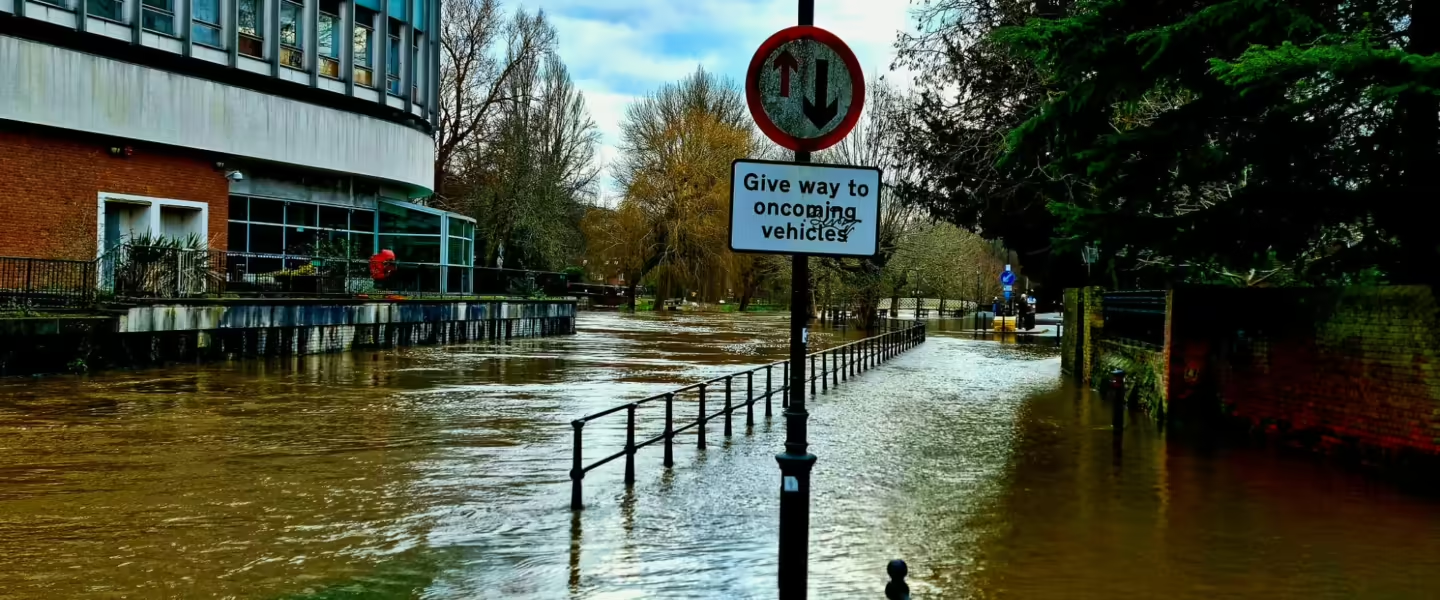Climate Scientists Unsurprised by Deadly European Storm Floods
PICKS are stories from many sources, selected by our editors or recommended by our readers because they are important, surprising, troubling, enlightening, inspiring, or amusing. They appear on our site and in our daily newsletter. Please send suggested articles, videos, podcasts, etc. to picks@whowhatwhy.org.
|
Listen To This Story
|
Climate Scientists Unsurprised by Deadly European Storm Floods (Maria)
The author writes, “Picturesque towns across central Europe are inundated by dirty flood water after heavy weekend rains turned tranquil streams into raging rivers that wreaked havoc on infrastructure. … Climate scientists say they are troubled by the damage but unsurprised by the intensity. ‘The catastrophic rainfall hitting central Europe is exactly what scientists expect with climate change,’ said Joyce Kimutai, of Imperial College London’s Grantham Institute. The floods have killed at least 15 people and destroyed buildings from Austria to Romania. She said the deaths and damage across Africa and Europe highlighted ‘how poorly prepared the world is for such floods.’”
The Origins of Trump’s False Claim That Democrats Want To Allow ‘Execution’ of Babies After Birth (Dana)
The author writes, “Where did Trump’s claim about executing newborn babies … come from? It appears to stem from comments made by former Virginia (not West Virginia) Gov. Ralph Northam, a Democrat and pediatric neurologist, in an interview with Washington, DC, radio station WTOP in 2019. Northam was asked about a proposed bill that would eliminate certain requirements around access to abortion in the second and third trimesters, and specifically about comments from the bill’s sponsor acknowledging that it would allow abortions up until just before birth. Northam noted that abortions in the third trimester of pregnancy are ‘done in cases where there may be severe deformities, there may be a fetus that’s nonviable. So in this particular example, if a mother is in labor, I can tell you exactly what would happen: The infant would be delivered; the infant would be kept comfortable; the infant would be resuscitated, if that’s what the mother and the family desired. And then a discussion would ensue between the physicians and the mother.’”
The Dangers of Christian Nationalism (Al)
From the St. Anthony Messenger: “A growing movement seeks to blur the line between Church and state by imposing Christian values on others, which goes against the teaching of the Church and poses a threat to democracy.”
Are Greedy Companies to Blame For Grocery Inflation? We Looked at the Data (Gerry)
From NPR: “Most shoppers wonder how far companies reach past costs to boost profits. This is where it gets technical fast, leading to nuanced takes by economists. … NPR crunched financial disclosures by a dozen of the largest grocery-item makers and sellers, including Walmart, Pepsi, Oreo-maker Mondelez and Procter & Gamble, which makes Pampers and Bounty. The idea was to track changes not in the sheer dollar amount, which rides the waves of our shopping sprees, but in the percentage of money that stays in corporate coffers after a sale.”
What Would It Take to Bring Renewable, Reliable Power to Puerto Rico? (Laura)
From Sierra: “The island is struggling to build a more stable electrical grid. What’s taking so long?”
Sex Tourism in Indonesia Sells Itself as Islamic Temporary Marriage (Reader Jim)
The authors write, “Her first contract marriage was to a tourist from Saudi Arabia. He was in his 50s, and she was 17. They wed in a small ceremony in a guest room at a three-star hotel in Jakarta under a controversial provision of Islamic law. An older sister came as her guardian, and the agent who brokered the deal served as the witness. The man paid a dowry of about $850, and after the agent and the officiant took their cuts, she was left with about half that. The newlyweds decamped to the man’s vacation villa in the mountain resort of Kota Bunga, a two-hour drive south. When they weren’t having sex, she mopped the floors and cooked, watched TV or chatted with the Indonesian maid. But mostly she just waited for it to end. That took five days. The man got on a plane back to Saudi Arabia, where he unilaterally ended the marriage by saying the Arabic word for divorce: ‘talaq.’”
What Researchers Learned From the World’s Oldest Cookbook (Mili)
The author writes, “A set of four cuneiform clay tablets unearthed in what was once Mesopotamia contain the etched ingredient lists for dozens of aromatic stews, pies, and soups. Three of the tablets date back as far as 4,000 years. Researchers have been fascinated by these ancient ‘cookbooks’ for years, but until recently, few people could actually see them. Since the 1930s, most of the 45,000 tablets, statues, and artifacts in the Yale Babylonian Collection had been stashed away in the bowels of Yale’s Sterling Memorial Library. This year, for the first time, much of the collection, including these long-buried recipe tablets, is on display for the general public at the Yale Peabody Museum in New Haven.”




